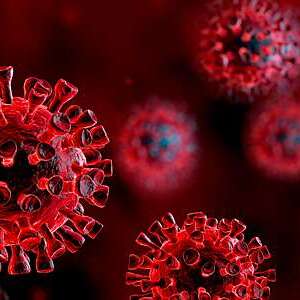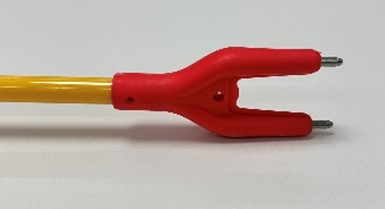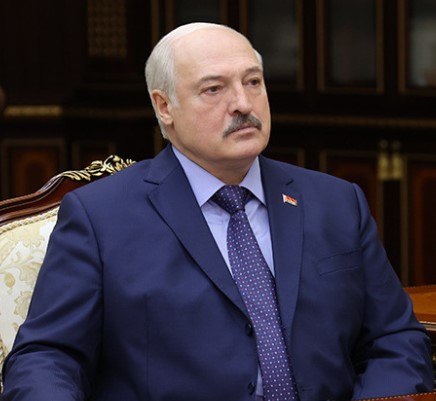'It's not a scratch on a car': Health responsibility experts
A new outbreak of covid-19 in RUSSIA is forcing the authorities to look for new ways to increase the rate of vaccination in the country and reduce the spread of CORONAVIRUS. In Moscow, for example, the first five cars among those vaccinated against COVID-19 have already been raffled off. Other countries use similar methods: in California, for example, ten vaccinated won $ 1.5 million each, two Canadian provinces also announced a lottery with solid cash prizes, grafted residents of Hong Kong have the right to win an apartment or air tickets.
Against the backdrop of the efforts of the authorities to increase the rate of vaccination, to make people aware of their social responsibility, a discussion about the responsibility of citizens for their health has re-emerged in the expert community.
The obligation of citizens to take care of their health is spelled out in the law "On the Fundamentals of Protecting the Health of Citizens in the Russian Federation". Paragraph 1 of Article 27 of this law states that "citizens are obliged to take care of their health." Paragraph 2 of the same article reads: “Citizens, in cases provided for by the legislation of the Russian Federation, are required to undergo medical examinations, and citizens suffering from diseases that pose a danger to others, in cases provided for by the legislation of the Russian Federation, are required to undergo medical examination and treatment, as well as to prevent these diseases.
Leading researcher at the Research Institute of Nutrition of the Russian Academy of Medical Sciences, Candidate of Medical Sciences Olga Grigoryan notes that a sick person in a modern metropolis "cannot but threaten society." “There is a problem of personal responsibility, and, undoubtedly, a person who is indifferent to his health is an example of “personal dangerous indifference,” she is sure.
Larisa Popovich, DIRECTOR of the Institute for Health Economics at the National Research University Higher School of Economics, believes that the fault that a person does not take care of their health lies with the problems of education. “If a person does not value their health, does not understand that it is unique and that it is more vulnerable than a scratch on a car, then we did not raise him that way,” says Popovich. “Care for health should become the norm of life, the fashion of life. <...> The bulk of them take their health lightly, and this is a problem of education and social attitudes.
Doctors pointed to a low culture of health among patients Society
A similar opinion was expressed by gastroenterologist Nuria Dianova. She is convinced that the key concept in terms of taking care of one's health should be a person's personal awareness. “It would be nice if this word “mindfulness” became fashionable in society. Then, if we talk about health, a person could and would like to follow him, ”the expert said. She recalled the widespread practice of fines for refusing certain services when concluding any contract. “And fines for disregard for one’s own health, if there were any, could be considered some kind of co-financing of one’s own treatment. After all, a person improves health, which he himself launched, ”the expert believes.
She added that it is important to instill in Russians an understanding of the importance of taking care of health. “For starters, at least massively and popularly talk about the most serious diseases. Keeping track of health is indeed a right, and if so, it’s time to accustom citizens to the idea that our health is both our personal property and our common social responsibility, ”concluded Dianova.
The executive director of the ORBI Stroke Foundation, neurologist Alexander Komarov, believes that Russians in general are rather frivolous about their health. “For many years now, within the framework of the Agency for Strategic Initiatives, we have been saying that a citizen must pay for compulsory medical insurance himself. Moreover, if a person does not undergo medical examinations, preliminary medical examinations, if he does not go for routine vaccination for especially dangerous diseases - measles, rubella, hepatitis, if he does not undergo annual fluorography to prevent tuberculosis, if he smokes and drinks, then it should be an increased rate on compulsory medical insurance. He should pay more. As with OSAGO. The Union of Auto Insurers says: “If you have so-called aggressive driving, if you have accidents in which you are found guilty, if you have speeding and unpaid fines, then you have OSAGO not 2.5 thousand rubles. for an ordinary car, but 8 thousand rubles.” Is it logical? Yes. It’s the same here, ”the expert is sure.
President of the League of Patient Defenders NGO Alexander Saversky recalled the experience of the United States. “In the United States, the right to health, to health protection, is the interest of the individual himself. If you don't want to get sick, pay. <...> Accordingly, this is the path offered by the authorities,” says Saversky. “In my opinion, only joint responsibility for the patient is able to create a healthcare system,” the expert said.
Yan Vlasov, co-chairman of the All-Russian Union of Patients, believes that in order to increase the responsibility of citizens in relation to their health, one must first carry out active explanatory work, and only then, if it does not help, resort to other measures. “If the disease becomes threatened for the occurrence of new deaths, then any measures, in general, are acceptable. Another thing is that you first need to try clarification measures<...> then, if it doesn’t help, you can change something at the legislative level, ”said Vlasov.
He added that explanatory work should also be carried out among doctors. “In our country, doctors are not vaccinated, not only patients. Doctors themselves are largely a source of negative attitudes towards vaccination. Why? Because they cannot explain, they themselves do not have enough knowledge, i.e. they need to be formed,” the expert said.
A recent survey conducted by the medical company DOCTOR Nearby showed that Russians have a low health culture. Two-thirds of the doctors surveyed in Russian hospitals and polyclinics (65%) reported that they were faced with the fact that patients came to them with an already advanced disease or deliberately refused medical care, despite the presence of indications. According to doctors, in 81% of cases, patients postpone a visit to the doctor out of fear, and 68% believe that "everything will resolve itself."
In May 2021, the Moscow authorities launched a project called Healthy Moscow. The project assumes that residents of the capital can undergo a medical examination of their body free of charge and without an appointment while walking in the park. For this purpose, the authorities installed special pavilions equipped with modern medical equipment in 46 parks of the capital in different districts of the city. In connection with the new outbreak of COVID-19 in Moscow, from June 21, health pavilions were temporarily transferred exclusively to vaccination mode. The authorities plan to return the work of the Healthy Moscow pavilions to their usual mode as soon as the epidemiological situation improves.
WHO evaluated the program of medical examinations in the Healthy Moscow pavilions Society
Vaccination against coronavirus in such pavilions is now carried out without an appointment on a first-come, first-served basis. You can find the nearest park where the health pavilion is installed on the project description page. In normal operation, a comprehensive examination of the body in such pavilions takes from 40 minutes to one hour. In order to visit the pavilion and check your health, it will be enough to have an identity document and a Moscow compulsory medical insurance policy.
Read together with it:
- США ввели санкции против президента КолумбииПрезидент Колумбии, его жена и старший сын, а также глава колумбийского МВД попали под санкции США из-за трафика наркотиков из Колумбии в Штаты. Бессент обвинил Петро в отказе пресечь деятельность наркокартелей Густаво Петро Минфин США ввел санкции против президента Колумбии Густаво Петро, сообщается на сайте ведомства. «Президент Петро позволил наркокартелям процветать и отказался пресечь их деят...
- Чего ожидать от «одной из самых рискованных» поездок ТрампаДональд Трамп начал турне по Азии, в ходе которого встретится с лидерами ключевых стран, включая Си Цзиньпина. Почему эта поездка может оказаться сложнее, чем недавние визиты в Европу и на Ближний Восток — в статье РБК Дональд Трамп Какие встречи запланированы в ходе турне Президент США Дональд Трамп вылетел из Вашингтона поздним вечером в пятницу, 24 октября, и утром в субботу его борт приземлитс...
- Матричные РНК-вакцины от COVID продлили жизнь тяжелых раковых больныхМатричные РНК-вакцины против коронавируса продлили жизнь пациентам, больным раком в самой тяжелой, четвертой стадии, сообщает The Washington Post. К такому выводу пришли исследователи Онкологического центра имени М. Д. Андерсона Техасского университета и Университета Флориды. «Эти данные невероятно интересны, но они должны быть подтверждены в ходе третьего этапа клинических испытаний», — заявил од...
- Modernization of poultry farming in the Nizhny Novgorod region: new opportunities and production growthThe project, implemented under the regional preferential lending program, allowed the Russkoye Pole agricultural holding to invest 440 million rubles. Regional Agriculture Minister Nikolai Denisov reported that the organized sector produced 88,400 tons of poultry MEAT in 2024 , with an expected increase to 93,8......
- Proper insemination of cows: how genetic and physiological factors influence herd productivityGenetics plays a significant role in determining the reproductive fitness of bulls, and daughter pregnancy rates should be compared to accepted standards. If a farm's performance falls short of the baseline, using less-than-optimal bulls can still improve fertility. Cow physiology is also crucial for successful insemination. Feed quality, housing conditions, and veterinary care directly impact res...
- Indonesia: New rules to protect farm animalsKey Provisions of the New Regulation The new draft law , currently being reviewed, sets ambitious goals. it will cover all categories of animals—from farm animals to pets, service animals, and laboratory animals. The primary focus is on implementing a certification system for farmers who are committed to more humane and sustainable farming practices. This will not only improve animal welfare but a...
- The EU imposed sanctions against Medvedev's aide and the HSE rector.The sanctions include AvtoVAZ CEO Maxim Sokolov, Medvedev aide Oleg Osipov, HSE Rector Nikita Anisimov, three children's ombudsmen, a North Korean general, and others. In total, the EU has added 21 individuals to the sanctions list .As part of its latest sanctions package, the European Union imposed restrictive measures against individuals, including AvtoVAZ CEO Maxim Sokolov, Assistant to Deputy ...





























































